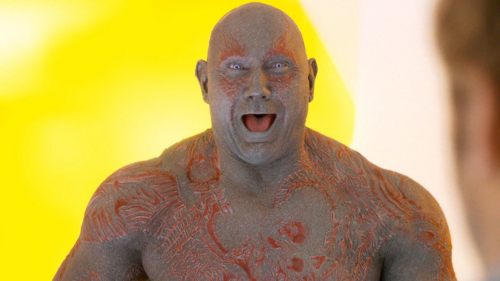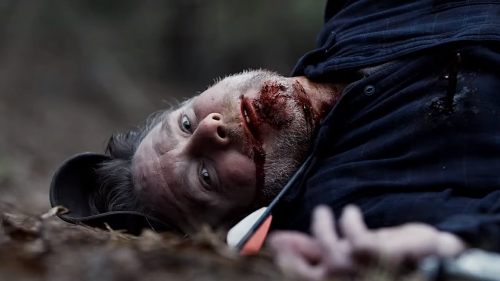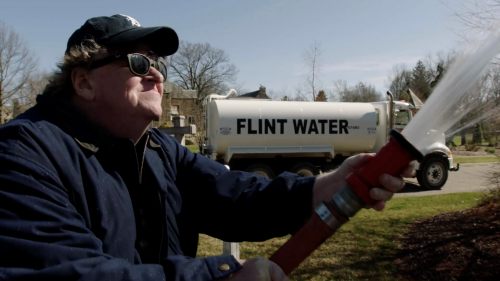Of Course Donald Trump Watched THE GREATEST SHOWMAN
Donald Trump watched The Greatest Showman at Camp David this weekend, and in a way that's a perfect match. The Greatest Showman is the myth Trump wants to believe about himself: a self-made New York businessman beloved by all, whose only sin is being too good for anyone else to comprehend. But where the myths match, so too do the truths: the real P.T. Barnum made his career by lying and exploiting others, and was less interested in his nominal profession than in making easy money.
The Greatest Showman’s historical lies of omission create an image of P.T. Barnum that only superficially matches reality. Hugh Jackman, charming and fleet of foot, might as well be playing Jesus, for how dazzled the film is by its own protagonist. Every other character either praises Barnum as a genius - and a very stable one at that - or is painted as a cartoon villain. Lip service is paid to Barnum's social-climber instincts, but they're portrayed as righteous, any acknowledgement of Barnum's real-life foibles laughed off as those of a cheeky scamp. The Greatest Showman lionises P.T. Barnum more than it does its actual lions. It's enough to make you puke back up your peanuts.
The true story, of course, would never sit comfortably in a feel-good family musical. Barnum didn't just open up a museum of curiosities one day. He got his start by "leasing" elderly, blind, paralysed slave Joice Heth via a legal loophole, exhibiting her as the 161-year-old former nurse of George Washington, up to 12 hours a day, until she died around age 80 - only to be further exploited in death, as Barnum charged 1,500 onlookers admission to watch her autopsy. This isn’t a minor incident - it’s the birth of Barnum the showman.
The Greatest Showman makes a meal out of the birth of show business, even implying Barnum coined the term. But the film's conflation of musical theatre conventions with those of Barnum's freak shows gets showbiz all wrong. Not only was Barnum's cabinet of curiosities nothing like the chorus of camaraderie depicted in the film; it wasn’t an appointment "show" at all, remaining static at Barnum’s American Museum until he got into the travelling-circus biz at age 60. Barnum’s more traditional showbiz outings - the Jenny Lind opera tour depicted in the film; moralistic plays and stage adaptations of Uncle Tom’s Cabin and Shakespeare; blackface minstrel shows - had little to do with his museum.
At his core, Barnum wasn't in it to entertain - he wanted to make a buck, and simply found he had a knack for the theatrical sell. And while the entertainment industry has long been full of such people, The Greatest Showman makes Barnum’s exploitative money-grabs a virtue. Anyone who thinks differently just doesn’t understand his dream - most prominently, New York Herald editor James Gordon Bennett Sr. The film’s attitude to Bennett’s criticism is best summed up by Paul Sparks’ snivelling performance: he’s a humourless know-it-all with no sense of fun, completely disconnected from the throngs flocking to Barnum’s shows. Whatever good The Post does for newspaper publishers, The Greatest Showman attempts to undermine.
Even Barnum’s more positive contributions were plasters over his more lasting legacy, often aimed at generating profit. His speaking out against slavery - once it became fashionable - doesn’t erase the fact that he made his first fortune off the back (and then corpse) of a slave, or the fact that he profited handsomely off blackface and hyper-othered people of colour (such as one man literally labeled "WHAT IS IT?"), cementing early forms of American racism over a period of decades. He may have given his "human curiosities" the only living they could get, but he arguably only increased the ostracisation of those like them by presenting them as freaks - far from the dignified social standing The Greatest Showman takes such pains to suggest. Barnum was also involved in promoting early animal-welfare regulations, but only for PR purposes - his business still rested on transplanting non-domesticated animals to an urban setting to perform for a paying audience. (Luckily for the filmmakers, you can't mistreat an animal if it's CGI.)
There's an interesting parallel between Showman's depiction of Barnum and The Disaster Artist's of Tommy Wiseau: though the latter is more nuanced, both men are clearly in show business for fame, money, and ego, yet both films present their subjects as starry-eyed dreamers. It'd be easier to believe Wiseau’s “if a lot of people love each other” platitudes if his work wasn’t so nakedly self-serving, and likewise, it’d be easier to believe Barnum’s quote “the noblest art is that of making others happy” (imposed on screen after the fade-out) if the film didn't uncritically present his exploitation as all-American go-getterism. Barnum was still asking about box-office receipts on his death bed; based on everything I’ve heard, Wiseau will probably be doing the same for The Room screenings on his.
Even in its production, The Greatest Showman is dishonest - even taking into account the conventions of musical cinema. Its songs are so overproduced, they make Beauty and the Beast look like Les Miserables, with certain vocals barely even resembling human voices anymore. Even the film's centrepiece vocal performance - Rebecca Ferguson as opera singer Jenny Lind - is embarrassingly obviously overdubbed. The cinematography's slickness removes any sense of texture from its historical setting, painting an attractive sheen over the entire story just like the screenplay does. It's just all so sickeningly plastic.
It’s ironic that a movie about a man who prided himself on “hoodwinking” his public is so profoundly dishonest. Whether or not you agree with Barnum’s reliance on “humbug” - hoaxes and tricks such as the “Feejee Mermaid” or indeed, Joice Heth - is a subjective matter. Exaggeration and hucksterism can, after all, be fun to experience even while being duped. The Greatest Showman’s revisionist history, on the other hand, is different. Barnum spent decades writing and revising his autobiography, constantly changing his story. Perhaps The Greatest Showman is simply the latest version of that story: a load of humbug, offering empty entertainment calories while consciously disguising the complex, unsettling truth.
The makers of The Greatest Showman would likely say that the film is a work of fiction, merely inspired by Barnum's life. Certainly, nobody's going to come out of the movie thinking Barnum sang and danced his way through everyday life (at least, Christ, I hope not). The film also has a convenient critical out, pre-built into the text, wherein any critic of its razzle-dazzle whitewashing is a stuck-up fun-hater. But just as Donald Trump's bizarre personal myth-building, The Art of the Deal, and cries of “Fake News” don't obscure the truth, neither should The Greatest Showman.
P.T. Barnum wasn't a complete monster. He's a complicated, fascinating historical figure in ways the film doesn't begin to address - but his legacy as one of the 19th century’s most famous Americans is incredibly troubling. The Greatest Showman lacks the nuance to acknowledge that. And if there's one thing the world needs now, it's nuance.



